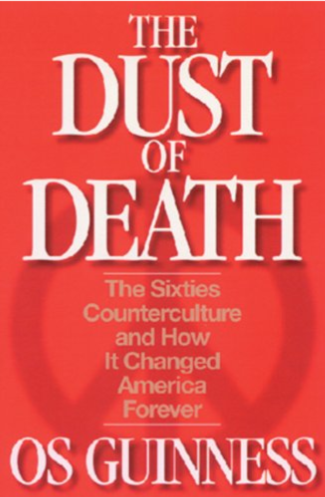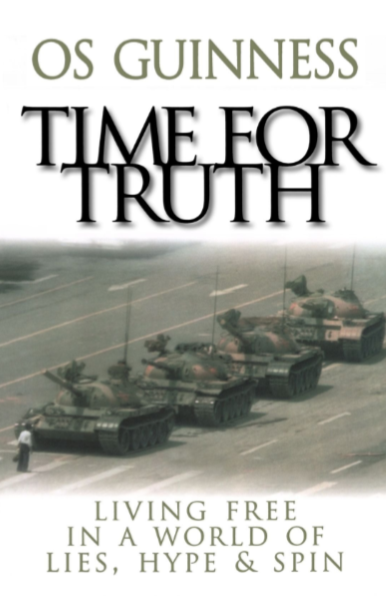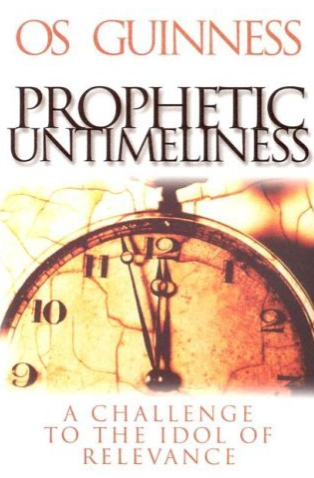The buzz among evangelicals today is about relevance and reinvention, about new ways of “doing church” through revising, innovating, borrowing, mixing, and experimenting. Yet, says Os Guinness, in our uncritical pursuit of relevance, Christians have actually become irrelevant. By our determined efforts to redefine ourselves in ways that are more in line with the modern world than are faithful to Christ, we have lost not only our identity but our authority and significance. Prophetic Untimeliness addresses this issue by giving practical, constructive solutions for living with integrity in the midst of modern pressures. Guinness explores what it means to be both faithful and relevant, and how to be truly relevant without being trivial or trendy. Readers will be challenged to develop “resistance thinking,” an approach inspired by C. S. Lewis that balances the uncomfortable truths of the gospel with the pursuit of relevance. Only by being true to Christ and living with integrity and wisdom will we meet the needs of a world that is hungry for some really good news.

The Dust of Death: The Sixties Counterculture and How It Changed America Forever
Guinness charts the journey of a generation, from the erosion of Christianity to the failure of the counterculture to provide an effective alternative to faith. The author calls for a new direction for the Western world, one which combines conviction with compassion and deep spirituality.

Time for Truth: Living Free in a World of Lies, Hype, and Spin
In postmodern society, truth no longer exists in any objective or absolute sense. At best, truth is considered relative. At worst, it’s a matter of human convention. But, as Os Guinness points out in this book, truth is a vital requirement for freedom and a good life.
Time for Truth urges readers to seek the truth, speak the truth, and live the truth. Guinness shows that becoming free and truthful people is the deepest secret of integrity and the highest form of taking responsibility for ourselves and our lives. Now in paperback, this engaging book will interest Os Guinness fans, thoughtful readers, and those concerned with moral, political, and cultural issues.

Prophetic Untimeliness: A Challenge to the Idol of Relevance
The buzz among evangelicals today is about relevance and reinvention, about new ways of “doing church” through revising, innovating, borrowing, mixing, and experimenting. Yet, says Os Guinness, in our uncritical pursuit of relevance, Christians have actually become irrelevant. By our determined efforts to redefine ourselves in ways that are more in line with the modern world than are faithful to Christ, we have lost not only our identity but our authority and significance. Prophetic Untimeliness addresses this issue by giving practical, constructive solutions for living with integrity in the midst of modern pressures. Guinness explores what it means to be both faithful and relevant, and how to be truly relevant without being trivial or trendy. Readers will be challenged to develop “resistance thinking,” an approach inspired by C. S. Lewis that balances the uncomfortable truths of the gospel with the pursuit of relevance. Only by being true to Christ and living with integrity and wisdom will we meet the needs of a world that is hungry for some really good news.
